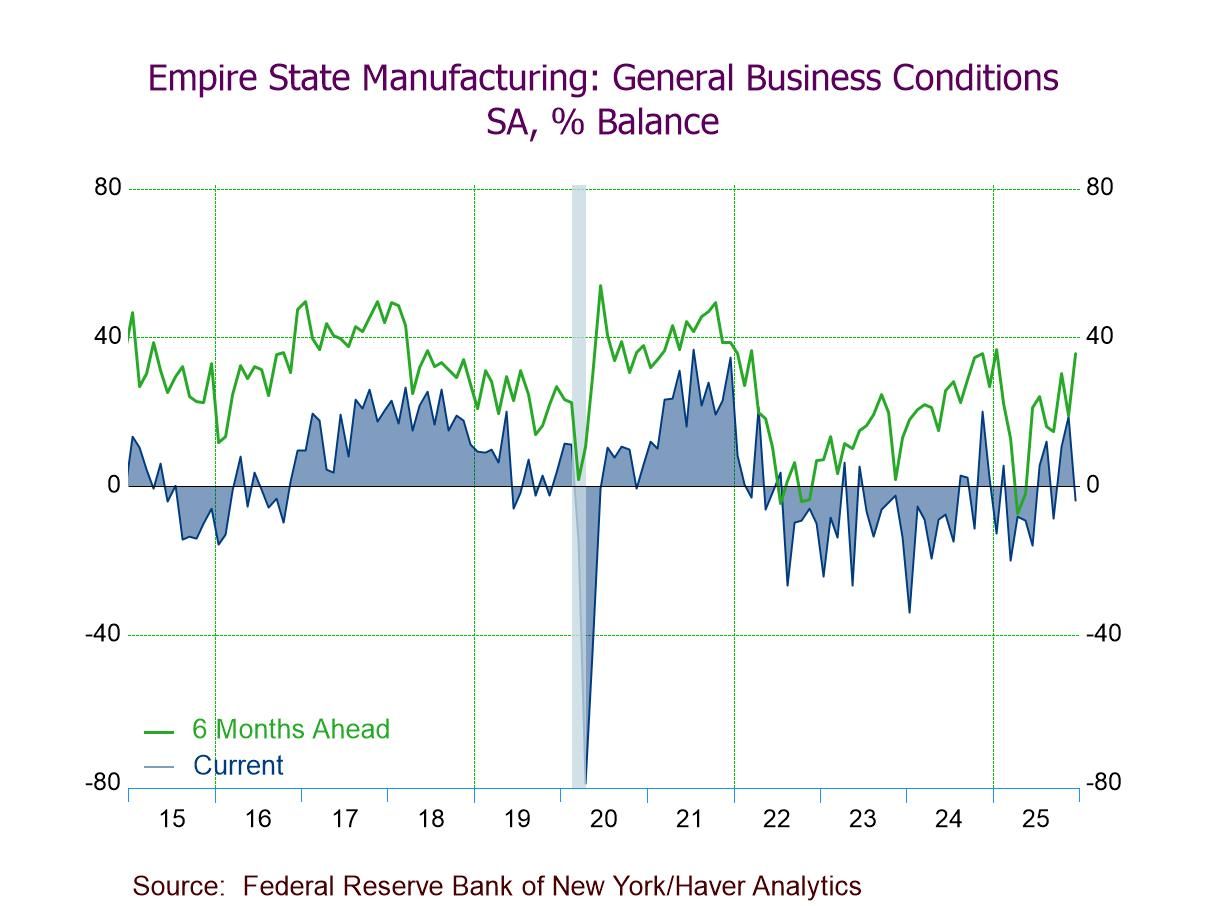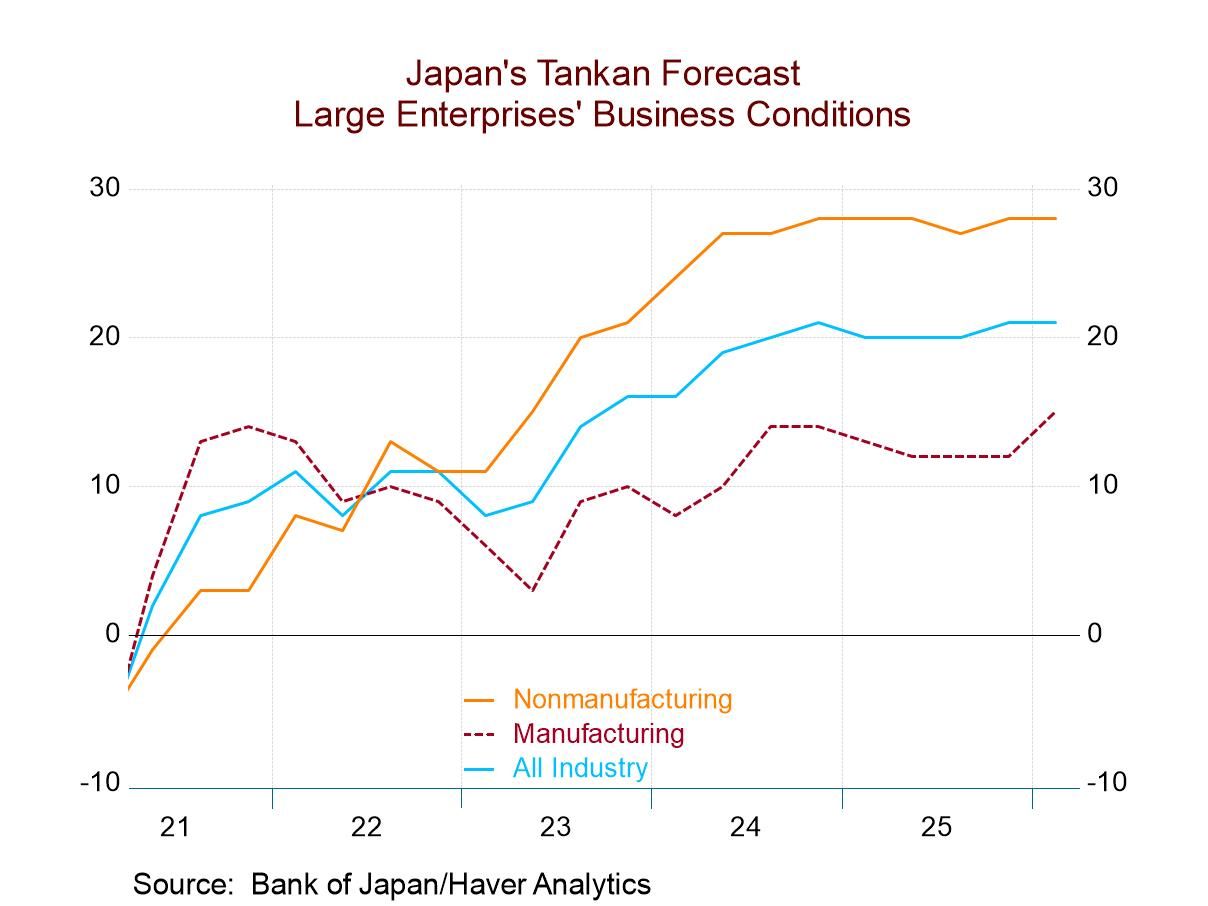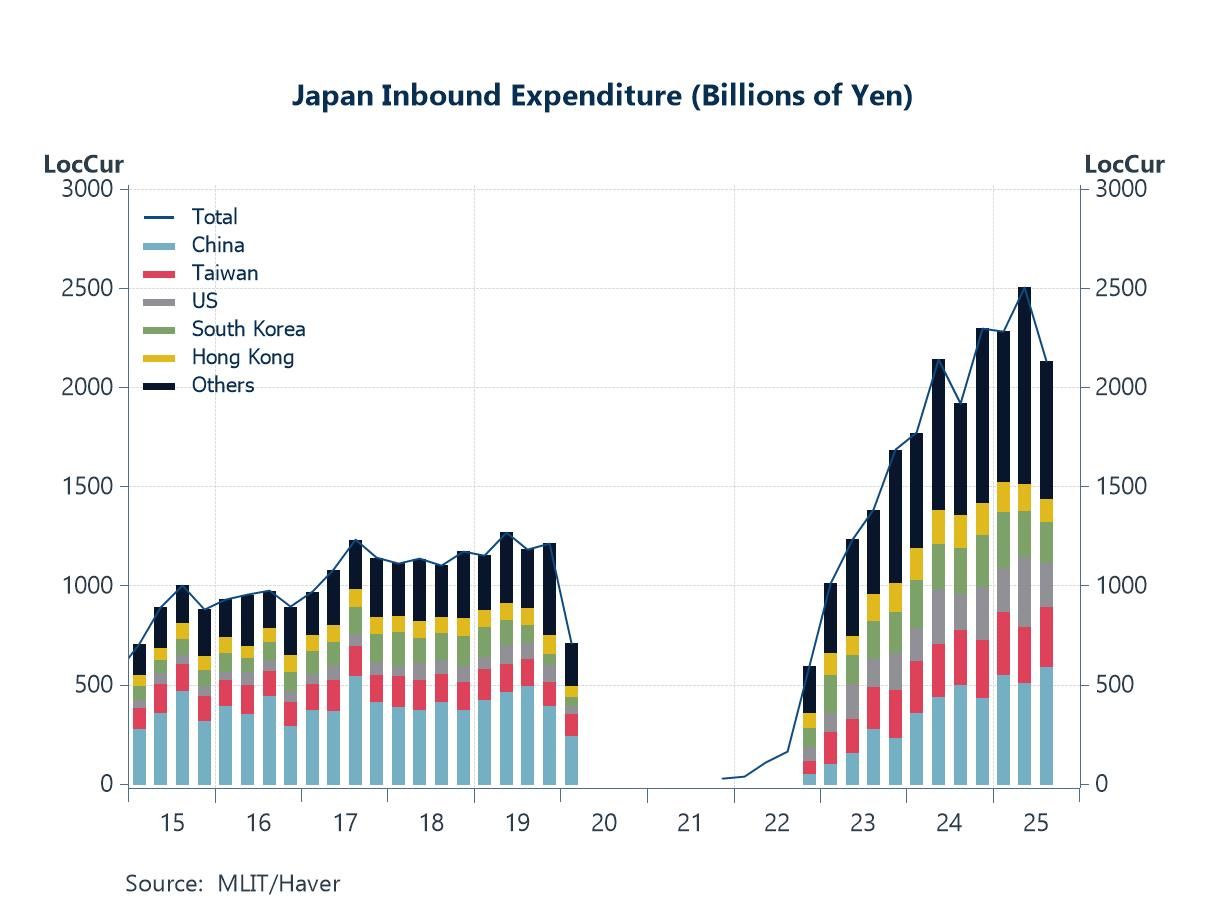 Global| May 28 2020
Global| May 28 2020Italian Confidence Erodes
Summary
Italy's consumer and business indexes plunge in May compared to their last values in March. The April surveys were skipped because of dislocations and risks associated with the coronavirus. The business index in May is at its all-time [...]
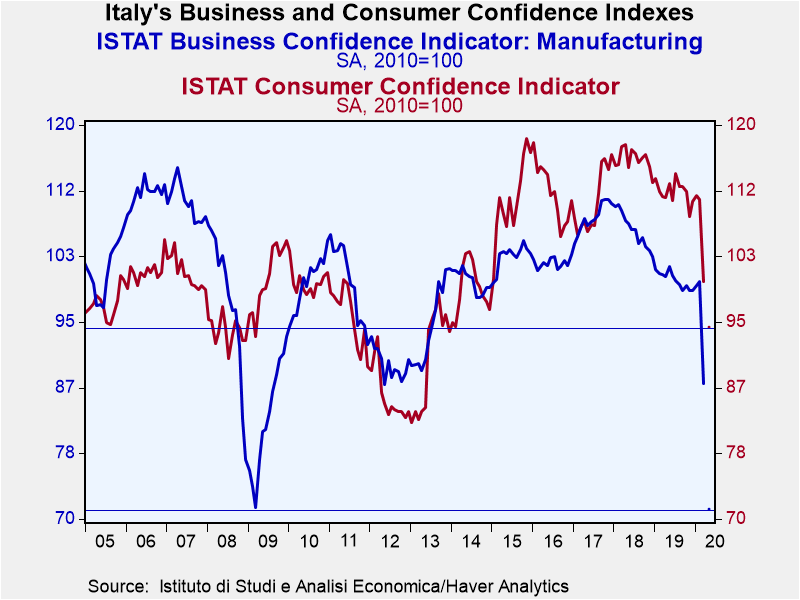 Italy's consumer and business indexes plunge in May compared to their last values in March. The April surveys were skipped because of dislocations and risks associated with the coronavirus.
Italy's consumer and business indexes plunge in May compared to their last values in March. The April surveys were skipped because of dislocations and risks associated with the coronavirus.
The business index in May is at its all-time low. Consumer confidence has been this weak or weaker only 10% of the time. Because the April observations were skipped, the chart does not connect the March dot to the May value. I have inserted horizontal lines in the charts to show where the single dots are for the month since they are otherwise all-but-invisible.
The overall situation for the last 12-months collapsed in May to a 1.3 percentile standing. For the next 12-months, the assessment is a just above its median reading at its 50.7 percentile. Still, the prospect of unemployment for the next 12-months is quite high with a 99.7 percentile standing back to end-1994. That reading jumped sharply from its March value. The household budget for the next 12-months eroded from March but holds to an above median 56.9 percentile standing.
For the last 12-months, the household financial situation worsened from March but still has an above median 67.0 percentile standing. For the next 12-months, the reading is unchanged at a deteriorated March value that has a weak 7.5 percentile standing. Both current and future household savings rankings are high and relatively firm-to-stable over the last several months.
However, the environment for making major purchases currently weakened in May after weakening sharply in March. It now has a 27.8 percentile standing.
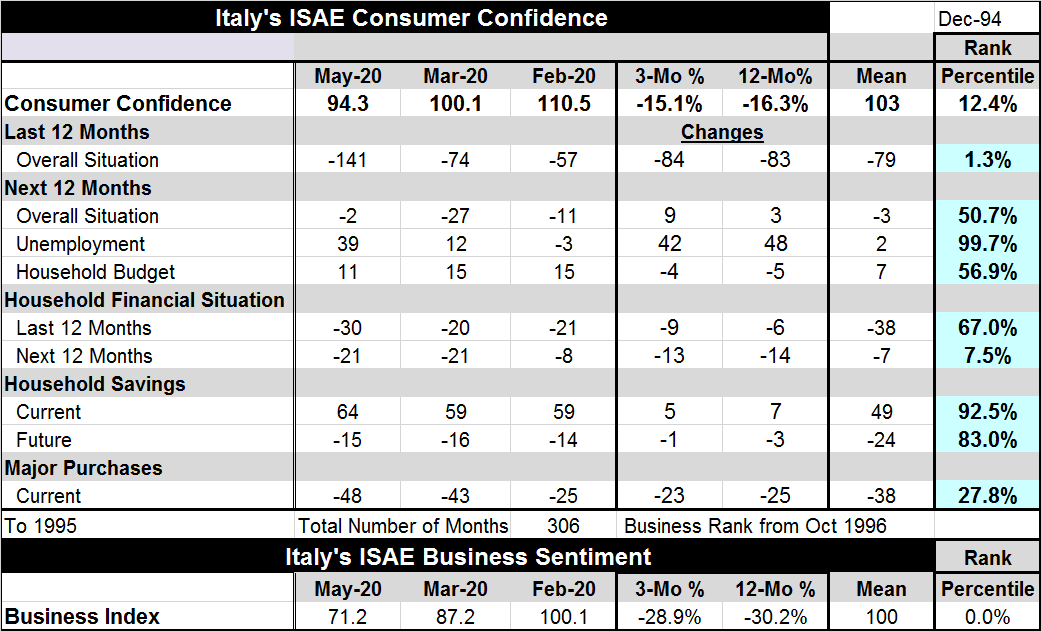
The Italian surveys are always interesting in their own way. The external view is that Italy is in real trouble. There is a high level of debt nationally and a large deficit to boot. The corona virus hit it hard; Italian banks are in bad shape; and the government has taken steps to soften the blow from corona strictures. But Italy is already over-the-top of its budget and the EU Commission, while compiling a bailout package, continues to do so amid warnings that it cannot become a transfer union - meaning that rich countries do not want to be put in a position to support incomes in the poorer South. Meanwhile, the ECB has been getting ready to implement its rescue package which could exclude the Bundesbank because of a domestic ruling that might not consider Bundesbank participation appropriate. Still, the Italian survey even with some clear concerns and red flags is surprisingly copacetic in a number of respects with above median rankings in place.
Let's forget about tomorrow for tomorrow never comes…
Robert Brusca
AuthorMore in Author Profile »Robert A. Brusca is Chief Economist of Fact and Opinion Economics, a consulting firm he founded in Manhattan. He has been an economist on Wall Street for over 25 years. He has visited central banking and large institutional clients in over 30 countries in his career as an economist. Mr. Brusca was a Divisional Research Chief at the Federal Reserve Bank of NY (Chief of the International Financial markets Division), a Fed Watcher at Irving Trust and Chief Economist at Nikko Securities International. He is widely quoted and appears in various media. Mr. Brusca holds an MA and Ph.D. in economics from Michigan State University and a BA in Economics from the University of Michigan. His research pursues his strong interests in non aligned policy economics as well as international economics. FAO Economics’ research targets investors to assist them in making better investment decisions in stocks, bonds and in a variety of international assets. The company does not manage money and has no conflicts in giving economic advice.



